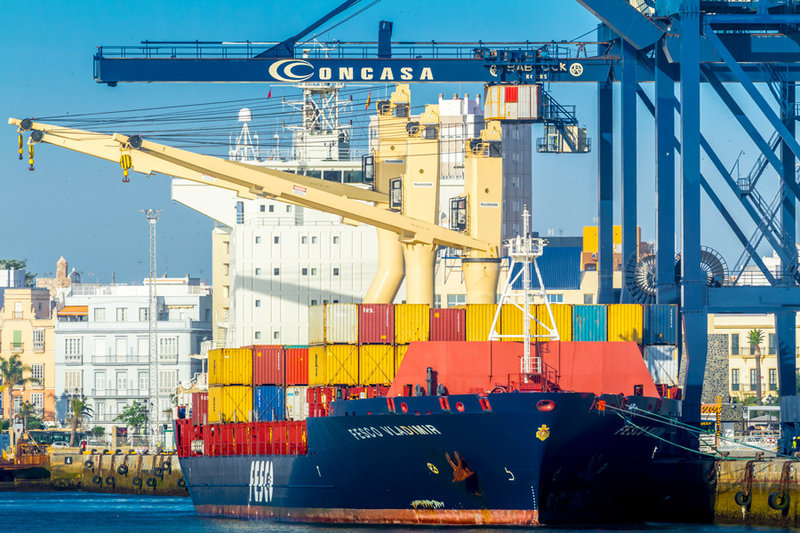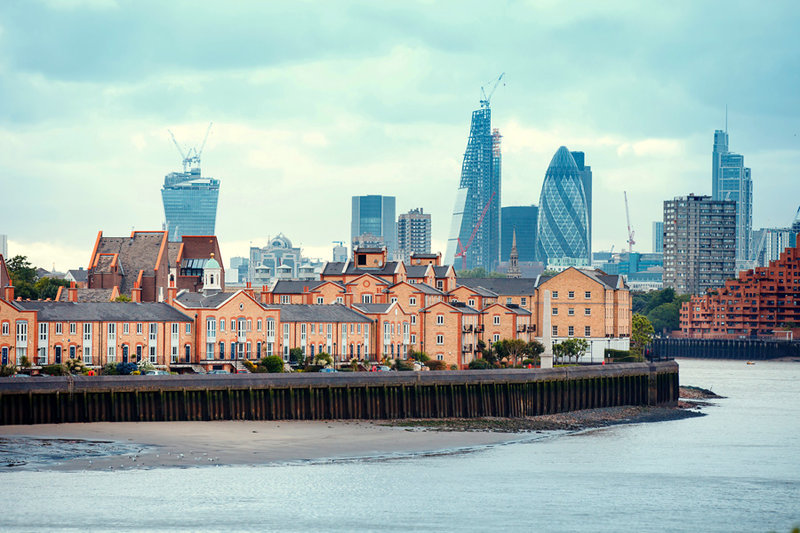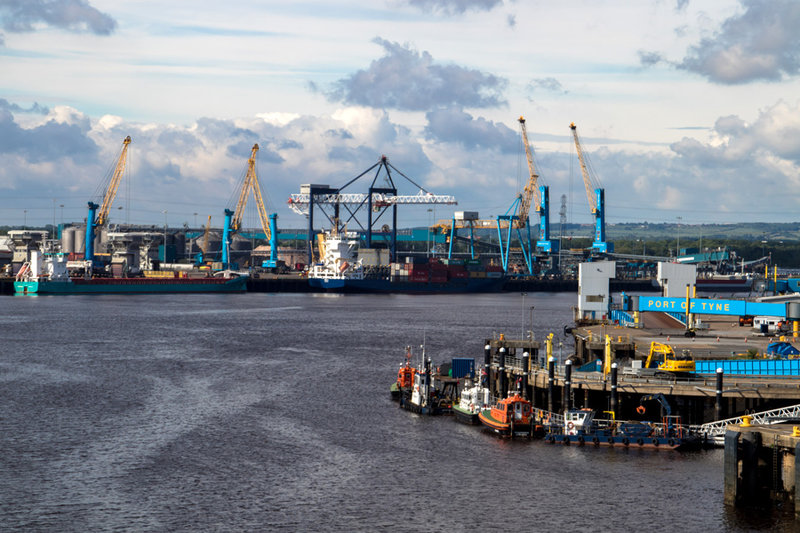Ports
What could the introduction of free ports mean for the UK?
The UK Government is planning to establish up to ten ‘free ports’ across Britain after Brexit to boost trade, though many claim these areas could facilitate money laundering and tax evasion. With Brexit now delayed until january 2020, Adele Berti answers five key questions the industry is asking about free ports.
Image: jean.cuomo / Shutterstock.com
As 2019 draws
to a close, the UK’s departure from the European Union has suffered its latest setback, with Prime Minister Boris Johnson requesting yet another extension to Brexit until the end of January 2020. Citizens of the UK and 27 EU member states are gearing up for another few months of political and economic uncertainty; if Brexit ever crosses the finish line, what will it look like? And will it have dire or uplifting implications for UK trade?
Indeed, trade was by far the most discussed topic at the recent London International Shipping Week, a top priority for all British political parties, as well as, inevitably, the current government’s main reason of concern.
As the countdown continues, the UK Government hinted it might have found a solution when it announced, in August this year, plans to introduce up to ten so-called ‘free ports’ across the country, as part of measures to support future trade.
Following on a pledge initially made during his summer election campaign, shortly after coming to power, Prime Minister Boris Johnson claimed such ports would “drive growth and thousands of high-skilled jobs in left-behind areas”, and launched a Freeports Advisory Panel, encouraging airports and ports in the UK to apply to become one.
But how effective a solution is this, and to what extent is the UK ultimately going to benefit from it? Here are the five questions on the industry’s lips and everything we know so far.
Stuart Rivers, CEO of Sailors’ Society.
Image courtesy of Sailors’ Society
What is a free port and how does it work?
Whether in aviation or in maritime, a free port is an area where normal tax and customs rules are heavily softened or don’t apply altogether. Despite being geographically located inside a country, they legally exist outside of it, which is why they are also often referred to as ‘free zones’.
This allows companies within the free port to manufacture, import and re-export goods free of tariffs, though taxes apply as normal when goods are sent to the rest of the country for sale.
Finally, businesses operating within a free port area are exempted from taxes when importing products to store or manufacture on-site before exporting them again.

The Port of Cadiz is one of seven free zone ports in Spain.
Image: David Acosta Allely / Shutterstock.com
Image courtesy of
Is this a new concept?
Not at all. Free ports have existed in Europe for a long time, and many of them are still active in several parts of the continent.
The EU currently counts 83 free ports across 21 member states, including Italy, Germany, Spain and France, the most historically famous ones being located in Copenhagen and Bremen.
According to a report by the UK Government, most of them existed before their host state became an EU member, as 56 of the 83 areas can be found in countries that joined the EU after 2004.
In the UK, seven free ports were established from 1984 but ended in 2012, when the David Cameron premiership decided to discontinue them. These included Liverpool, Southampton, Port of Tilbury, Port of Sheerness, as well as Prestwick Airport.
Overall, all free ports and free zones located in the EU are subject to the Union’s regulations, particularly the EU state aid rules, which are meant to support fair competition and prevent governments from favouring certain companies over their competitors.
Why does the UK Government want to establish free ports?
With no certainties on whether the UK will manage to secure a deal with the EU before it leaves, Number 10 has been manically looking for ways to keep imports and exports going in a worst-case scenario, and believes that creating free ports could be a solution.
As a result, the government’s plan would see the establishment of a mix between the traditional free port and the so-called ‘special economic zones’.
As explained by the Financial Times, such places would offer large tax advantages, as well as “the kind of urban development corporations that, through a more streamlined planning process, created the financial centre Canary Wharf in a former industrial part of London during the 1980s.”
In the words of International Trade Secretary Liz Truss, “freedoms transformed London’s Docklands in the 1980s, and free ports will do the same for towns and cities across the UK. They will onshore enterprise and manufacturing as the gateway to our future prosperity, creating thousands of jobs.”
Supporting this claim, construction group Mace says that free ports could help create 150,000 new jobs, while annually contributing £9bn to the UK economy.
In a statement announcing the launch of the Freeports Advisory Panel, the government added that these areas would help remove costs and bureaucracy while unlocking trade opportunities with the US and Asian markets post-Brexit.

UK International Trade Secretary Liz Truss claims free zones ‘transformed’ London’s Docklands area in the 1980s.
What are critics saying?
Naturally, not everybody is on board with the plan, with criticism mainly coming from opposition parties and some independent bodies.
On the political front, Labour MP and shadow international trade secretary Barry Gardiner recently said the move has little to do with supporting new investments and growth, but is rather “a race to the bottom that will have money launderers and tax dodgers rubbing their hands with glee”.
“Free ports and free enterprise zones risk companies shutting up shop in one part of the country in order to exploit tax breaks elsewhere, and, worst of all, lower employment rights,” he added.
His argument draws from a recent report by the European Commission, published earlier this year, which identified tax-free zones as potential grounds for money-laundering activities.
Defined by European justice commissioner Věra Jourová as “the new emerging threat”, these areas were included in the Commission’s report for the first time this year.
Meanwhile, further doubts have also been raised by the UK Trade Policy Observatory, which recently warned free ports could have a limited impact and their benefits largely depend on a number of factors including access to transport infrastructure, as well as labour and capital.

The Port of Tyne, UK.
Image: Theodorie / Shutterstock.com
What does the industry think of the plan?
Reaction across the UK maritime industry has so far been mixed. Welcoming the plan in early August, Richard Ballantyne, CEO of the British Ports Association (BPA), warned that balance will be needed in order to also keep non-free ports competitive and functioning after Brexit.
"Many of the benefits of a traditional ‘free port’ can be achieved in the UK through existing processes, but we look forward to working with government on how a UK-specific model can boost sustainable development in and around ports and add real value," he added in a statement.
However, a month later, the BPA joined forces with a number of organisations – the Port of Milford Haven, the Port of Tyne and the Institute for Exports – to create a new trade campaign coalition called Port Zones UK.
In September, the alliance published a report outlining a number of areas of intervention the government should look into if it wants to attract international investment as part of its free port programme.
The study also promotes “regional growth centred on key UK transport hubs through the designation of enhanced ‘Enterprise, Development and Free Trade Zones’”.
On the other hand, several industry stakeholders have argued against the programme itself. Among them, Neil Davidson, ports analyst at Drewry Shipping Consultants recently told a parliamentary select committee on international trade that creating free ports will not act as a panacea of Britain’s trade struggles.
He also told the Financial Times that the lack of an obvious market for the re-exported goods makes the plan hard to understand, saying: “I can’t see the logic of bringing goods into the UK to do a re-export that would then go to the EU anyway.”